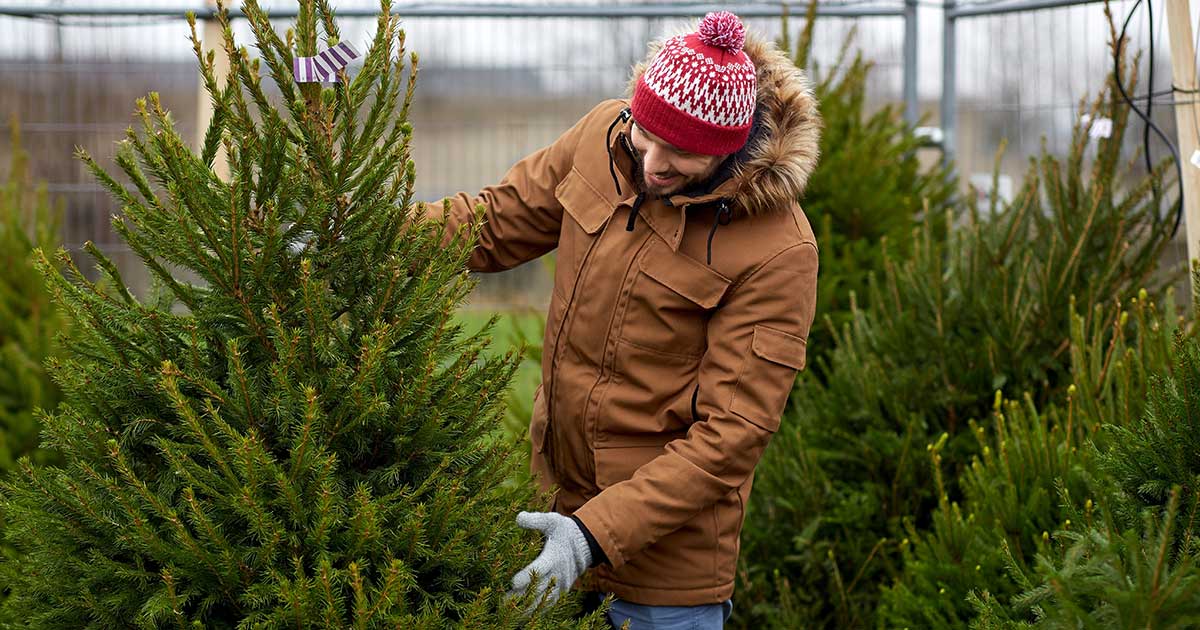
For many, decorating a Christmas tree is a cherished part of the holiday season. Yet, the choice of tree can have significant implications for our health and the environment. This comprehensive guide aims to shed light on the concerns associated with conventional Christmas tree farming, notably the use of harmful chemicals, and offers an in-depth look at how to select a non-toxic tree for a safer, more sustainable holiday.
Understanding the Risks of Conventional Christmas Trees
Commercially grown Christmas trees often come from farms where pesticides and fungicides are common. These chemicals, essential for maintaining the trees’ aesthetic appeal, can have detrimental effects on human health and the environment.【1】 Pesticides, even in small amounts, can cause lung and eye irritation. More worryingly, long-term exposure to these chemicals has been linked to serious health issues like hormonal disruptions and an increased risk of cancer.【2】【3】 When we bring these trees into our homes, we inadvertently introduce these harmful residues into our living spaces.
The Environmental Impact
The environmental impact of conventional Christmas tree farming extends beyond the use of chemicals. These practices can lead to soil degradation, water contamination, and harm to wildlife. The focus on single-species plantations also diminishes biodiversity. Thus, the seemingly innocuous choice of a Christmas tree carries broader ecological consequences.
Alternatives to Traditional Christmas Trees
Seeking a non-toxic Christmas tree doesn’t mean forgoing the tradition. Environmentally friendly alternatives, like naturally or organically grown Christmas trees, are available and offer a safer choice for homes and the planet. These trees are cultivated with reduced or no chemical use, aligning better with natural processes and supporting sustainable farming practices.
How to Find a Non-Toxic Christmas Tree
- Research Local Tree Farms: Inquire about growing practices at local farms. Look for trees grown without or with minimal use of chemicals. Organic or naturally grown trees are preferable.
- Harvest Your Own Tree: If regulations allow, self-harvesting a Christmas tree can be a meaningful family activity. Obtain the necessary permits and follow sustainable harvesting guidelines provided by local forestry services.
- Certifications and Standards: Look for organic or sustainably grown certifications, which indicate adherence to certain environmental and health standards.
Harvesting Your Own Tree: A Sustainable Adventure
Harvesting your own Christmas tree can be a rewarding experience that fosters a connection with nature and teaches environmental stewardship. It’s essential to follow local guidelines to ensure sustainable practices. This process provides a unique tree and an opportunity to understand and appreciate the natural environment.
Supporting Eco-Friendly Tree Farms
Choosing a tree from a sustainable or organic farm supports eco-friendly agriculture. These farms often employ practices like integrated pest management, which reduces reliance on harmful chemicals and focuses on maintaining the health of the soil and ecosystem. By supporting these farms, consumers encourage more environmentally responsible farming methods.
Broader Considerations for a Non-Toxic Holiday
To extend the spirit of a non-toxic holiday, consider:
- Eco-Friendly Decorations: Opt for natural or biodegradable decorations and energy-efficient lighting.
- Responsible Disposal: After the holidays, participate in tree recycling programs or replant potted trees to reduce waste and contribute to environmental health.
Conclusion
Selecting a non-toxic Christmas tree is more than a personal health choice; it’s a step towards environmental sustainability. By making informed decisions and supporting greener practices, we can enjoy the festive season while contributing to a healthier planet.
References:
- Beyond Pesticides, “Christmas Trees and Pesticides”, www.beyondpesticides.org/programs/center-for-community-pesticide-and-alternatives-information/pesticide-free-holidays/christmas.
- Penn State Extension, “Potential Health Effects of Pesticides”, extension.psu.edu/potential-health-effects-of-pesticides.
- Mnif, Wissem et al., “Effect of endocrine disruptor pesticides: a review”, International Journal of Environmental Research and Public Health, doi:10.3390/ijerph8062265.




Leave a Reply
Your email is safe with us.